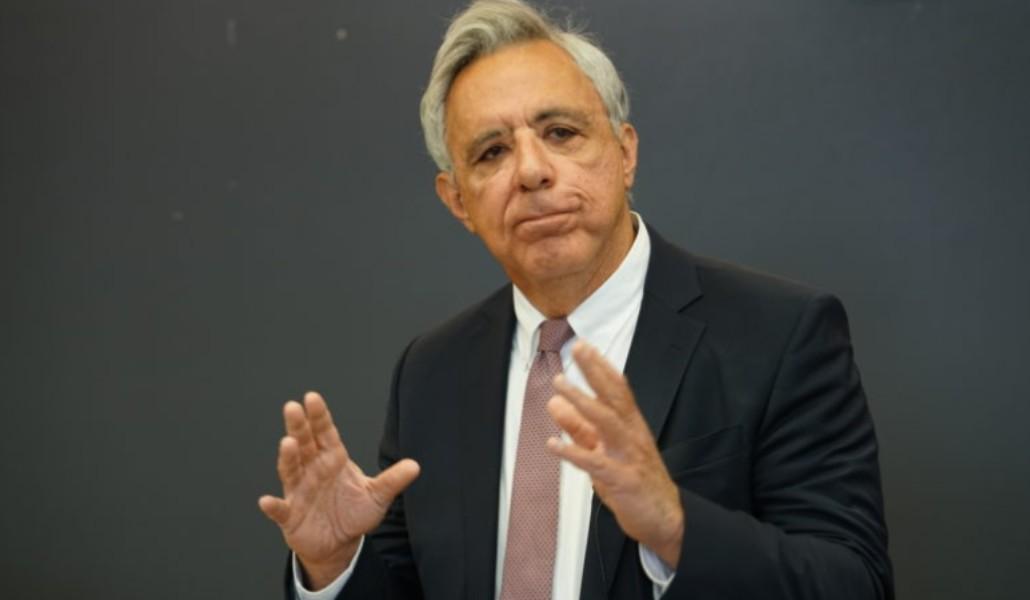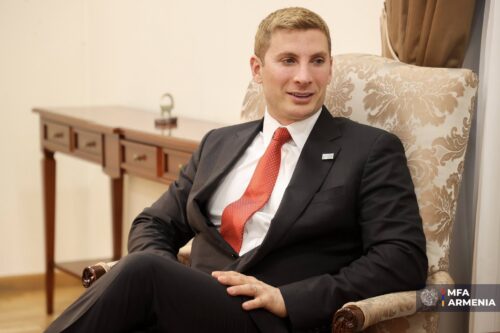
What is Pashinyan going to sign in Ankara? Vartan Oskanian on potential consequences
Armenia’s Former Foreign Minister Vartan Oskanian has referred to Nikol Pashinyan’s upcoming visit to Turkey, noting that it is not a “historical moment” or a “turning point” event, but the peak of national humiliation.
“Armenians must not be misled. This visit is not a diplomatic milestone; it is the culmination of a six-year trajectory of national humiliation that began in 2018 and now threatens to become irreversible.
What Pashinyan seeks in Ankara is political validation—and indulgence to ensure his political survival. The price he appears willing to pay is nothing less than the dignity and future of the Armenian people. What is likely to unfold in Ankara is that, through Turkey’s mediation, Azerbaijan will agree to sign Pashinyan’s document in exchange for either a verbal or secret agreement that he will fulfill Azerbaijani demands at a later stage. Alternatively, Azerbaijan may sign the document but delay its ratification until Pashinyan delivers on those demands—much like what occurred during the ‘football diplomacy’ a decade and a half ago.
This so-called peace agreement with Azerbaijan has not been shaped by mutual respect, negotiation, or justice. It has been forged under duress, under occupation, and in the aftermath of war crimes. It does not address, let alone remedy, the grave injustices committed against Armenians in recent years. It makes no mention of the Armenian hostages still languishing in Baku’s prisons. It offers no path for the return of the forcibly displaced Armenians of Nagorno-Karabakh to their ancestral lands. It demands nothing of Azerbaijan regarding its continued military presence inside Armenia’s sovereign borders.
What it does offer is an illusion—a document crafted to appear as progress while codifying surrender. It is a pageant of submission, designed to serve the political needs of Pashinyan’s government rather than the national interests of Armenia. And for Azerbaijan and its allies, it is a moment of triumph—an opportunity to formalize the consequences of their aggression without making a single concession.
That this next phase may be sealed in Ankara—a city symbolically and historically weighted with Armenian memory—is no accident. It is a message, loud and clear, that the era of Armenian spirit is over, and that its leadership is prepared to accept even symbolic humiliation in pursuit of personal and political survival.
But let us be clear: if such an agreement is signed, it will not bind the Armenian nation. It will not be an agreement between Armenia and Azerbaijan. It will be a deal between Pashinyan and Aliyev—two men with fundamentally different motives. One seeks control. The other seeks absolution. And neither seeks justice.
The Armenian people did not choose this roadmap. They did not consent to a process that erases their pain, their rights, or their history. Any agreement that fails to secure the release of Armenian hostages, that ignores the right of return for the Armenians of Artsakh, and that allows Azerbaijani troops to remain on Armenian soil cannot be considered legitimate. It will be null and void—not only in legal terms but in the hearts and minds of the Armenian people.
History will not look kindly upon those who sign under coercion and call it peace. Nor will future governments be bound by a document that codifies defeat, silences trauma, and abandons justice.
Armenia deserves better. Its people deserve a leadership that understands the difference between reconciliation and capitulation. A future worthy of our history will not begin in Ankara. It will begin when we reclaim our voice, restore our dignity, and demand a just peace—one that honors sacrifice, upholds sovereignty, and reflects the true will of the Armenian nation,” Oskanian stated.


